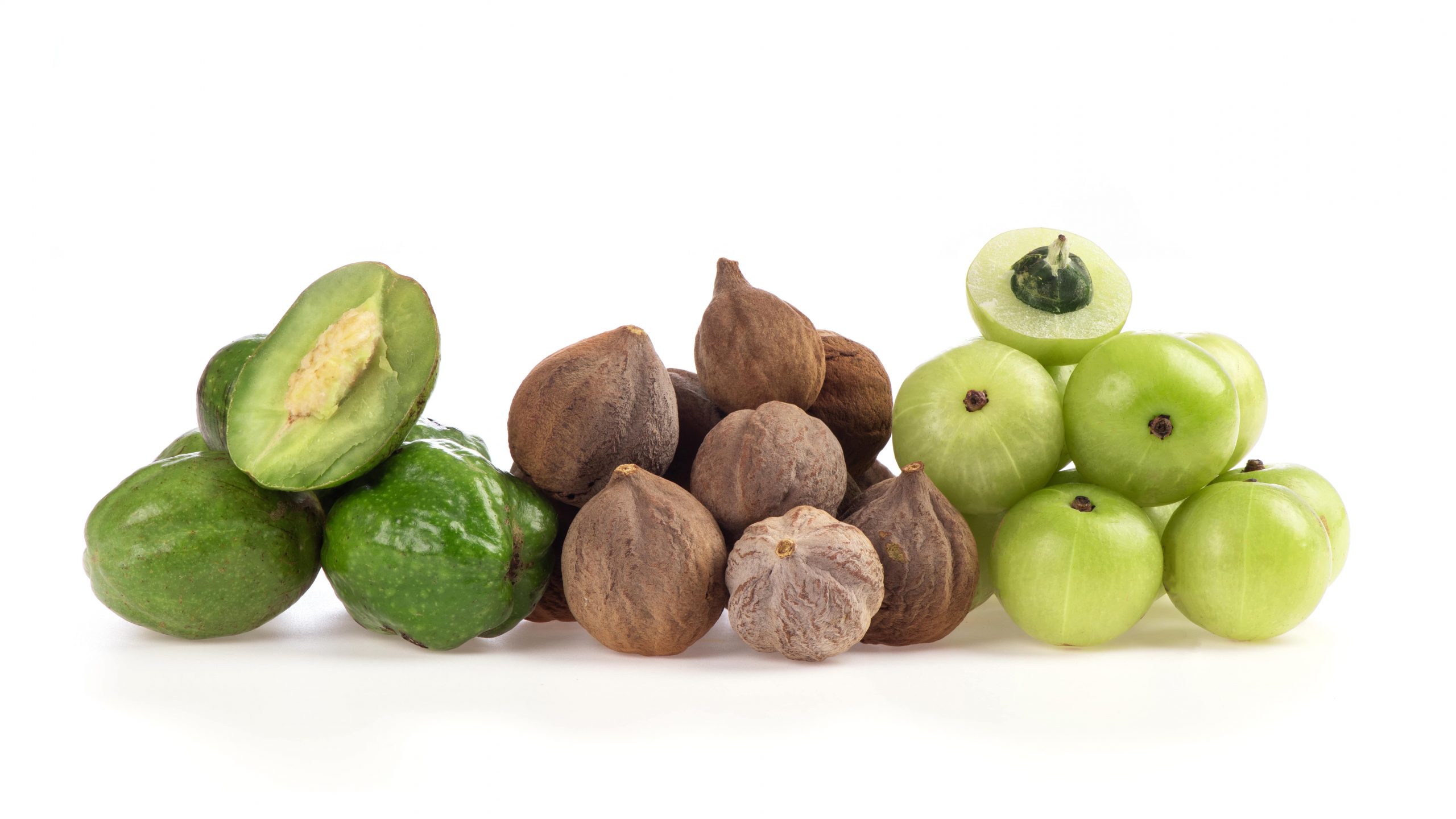Triphala, this word may sound new to you, but it has been used for over a century now. It is a herbal and healing remedy that has been used to cure common and minor infections in the Ayurvedic medicine. Using it may help keep healthy.
Ayurvedic medicine is Indian and one of the oldest methods of treatment that involves balancing phlegm, bile, and wind. It was discovered over three centuries ago. Triphala being part of the Ayurvedic medicine is also made up of three Indian herbs – amla, bibhitaki, and haritaki. Triphala has increasingly become more popular not only in India but the whole world. This article explores tripahala, its health benefits, and potential side effects.
What Is Triphala?
Triphala has been a major ingredient in the traditional Ayurveda drugs for thousands of years. It has been used to treat symptoms of dental cavities, stomach discomfort, among other common health problems. It has been said to extend lifespan and promote overall health. Triphala is a polyherbal medicine – meaning that it is made up of more than two or three medicinal herbs. Ayurvedic medicine – a traditional method of treatment that deals with the prevention of disease and promotion of health – often use polyherbal medicine. It is said that combining herbs that work synergistically help achieve an extra therapeutic effectiveness and is stronger than taking only one component. That said, Triphala is made up of three Indian fruits. These fruits are derived from the following plants:
Amla (Emblica Officinalis)
Amla is a fruit that has been long used in the Ayurvedic medicine. It is sometimes referred to as Indian gooseberry. It is one of the ancient edible fruits consumed in India. The tree that produces Indian gooseberries are usually of small or medium size and grows naturally throughout Indian soil. These edible fruits are nutritious and deliver lots of vitamin C, minerals, and amino acids. They are also high in potent plant compounds, such as tannins, phenols, rutin, emblicol, phyllembelic acid, and curcuminoids. Some of these compounds have been shown to have anticancer effects against ovarian and cervical cancer.
Bibhitaki (Terminalia bellirica)
Terminalia bellerica is widely found in Southeast Asia where it grows into a large tree. In Ayurvedic medicine, this tree is referred to as “bibhitaki” and its fruits are often used to combat common infections of viral and bacterial origin. Bibhitaki is also high in powerful compounds like tannins, lignans, ellagic acid, flavones, and gallic acid, all of which have medicinal properties. This herbal medicine is thought to have several uses and may be effective at treating a variety of medical problems.
Bibhitaki has been shown to have anti-inflammatory qualities, and may help treat conditions like gout. The phytochemicals in bibhitaki, that is, ellagic acid and gallic acid, may help reduce blood sugar levels, increase insulin sensitivity, and promote weight loss.
Haritaki (Terminalia chebula)
Terminalia chebulais an Ayurvedic medicinal tree widely found in India, Middle East, Thailand, and China. Also known as haritaki in Ayurvedic medicine, the fruits of this tree are used as medicine. It makes up the third component of Triphala. Haritaki is highly valued in Ayurveda that it’s often called the “king of medicines.” It can be used to manage several conditions, such as asthma, heart disease, stomach issues, and ulcers. Same to its counterparts in this article, haritaki also contains plant compounds, including flavonoids, polyphenols, terpenes, and anthocyanins, which can benefit your health. In Ayurvedic medicine, this herb is also used to manage constipation.
Potential Health Benefits of Triphala
Since it contains three herbs, all of which have powerful plant compounds, Triphala can be used to manage an array of ailments and prevent chronic conditions.
Anti-Inflammatory Effects
The antioxidants found in Triphala may play protective roles in your body. The key antioxidants it contains include saponins, polyphenols, tannins, and vitamin C, just to name a few. These compounds may help combat oxidative stress that is caused by free radicals. Oxidative stress has been associated with several chronic conditions including heart disease, certain types of cancer, type 2 diabetes, among others. Increasing your intake of foods high in antioxidants may help prevent such ailments. Studies have indicated that Triphala relieve inflammation and damages associated with arthritis. Furthermore, taking supplements enriched with antioxidants can help reduce the risk of heart disease, inflammation, and boost athletic performance.
May Prevent Certain Types of Cancer
Triphala has been found to be effective at protecting against certain types of cancer. Animal studies suggest that it may slow the growth of lymphoma and pancreatic cancer. It has also shown significant effects against prostate and colon cancer. Triphala possesses anticancer properties courtesy of powerful antioxidants like polyphenols and gallic acid. While these results may be promising, no human research have confirmed anticancer effects of Triphala. Therefore, more human studies should be done in this area.
May Protect Against Oral Diseases and Dental Cavities
Triphala may prevent oral diseases in several ways. It is thought to have antimicrobial and anti-inflammatory effects that may impede plaque formation, which is a common cause of gum inflammation. Rinsing with a mouthwash made with Triphala extract as an ingredient may help reduce the formation of plaque, reduce the number of bacteria in the mouth, and prevent gingivitis.
May Aid Weight Loss
Published studies suggest that Triphala may promote fat loss, especially in areas around the belly.
Can Be Used to Relieve Constipation
For several centuries, Triphala has been used as a natural laxative to manage digestive issues like constipation. It can be used to replace over-the-counter laxatives. When used alongside other extracts like isabgol extract, Triphala can significantly manage constipation by reducing symptoms like straining, abdominal pain, flatulence, improve bowel movements, and increase frequency and consistency. Animal studies have also shown that Triphala can help reduce inflammation of the intestines and repair damages along the intestinal walls.
Side Effects
Potential side effects of Triphala include diarrhea and abdominal discomfort, especially when taken in high amounts. It may also interact with medications like warfarin.
Conclusion
Triphala is a polyherbal medicine that is highly valued in the Ayurvedic medicine. It is made with the fruits of haritaki, bibhitaki, and amla, all of which have powerful plant compounds and can benefit your health. Taking a high dose of Triphala may cause diarrhea.









